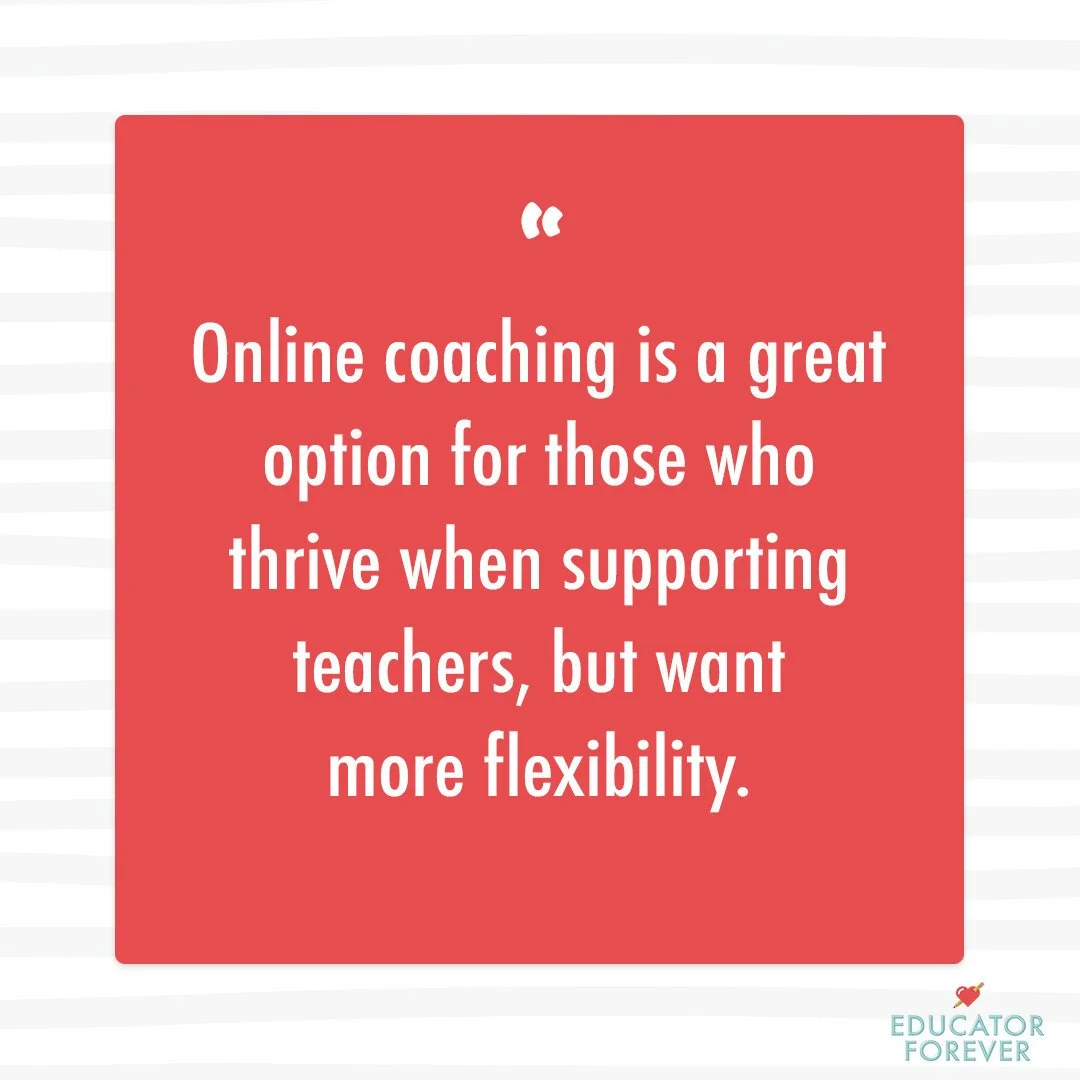Virtual Instructional Coaching: How to Get Started & Get a Job
When I first started coaching teachers, I would travel around to different schools. I hadn’t yet discovered virtual instructional coaching, so when I went to coach, I had to check in at school offices, find my way to classrooms in various local cities, and wait for lessons to start.
It was rewarding, but it soon became exhausting. I was spending as much time driving from school to school as I was working with teachers! When I discovered the world of online instructional coaching for teachers, it changed everything. I was able to support teachers across the country from the comfort of my own home — and finally get the flexibility I was looking for.
Does virtual instructional coaching sound like something you’d be interested in? Then keep reading to learn more about this field and how to get started with instructional coaching jobs.
What is Instructional Coaching Online?
When you coach teachers online, you typically follow the same instructional coaching cycle as you would when providing in-person coaching.
First, you meet with teachers to plan a lesson and hear what they would like feedback on. Next, you observe the lesson that the teachers planned. This part of virtual instructional coaching can be done live, with a camera set up in the classroom.
Lessons can also be recorded, so that you can watch the lessons on your own time. Some instructional coaching organizations have teachers upload videos to platforms where you can leave comments directly on the teachers’ videos, allowing you to pinpoint specific spots that you would like to call out or discuss.
Finally, you meet with the teachers virtually to provide support and feedback. Through these debrief sessions, you are able to build relationships and create action steps.
The beauty of doing instructional coaching virtually, other than being able to do it from home, is that you can use your expertise to reach teachers all over. Teachers also get the benefit of working with coaches that they might not have had access to before. That means if you have an area of focus like trauma-informed teaching or social-emotional learning, teachers all over can benefit from your expertise.
Getting Started With Virtual Instructional Coaching Jobs
When applying for online instructional coaching jobs, you’ll likely be asked about your experience coaching or mentoring teachers.
If you don’t have formal coaching experience, that’s okay. Think about informal ways that you have worked with other teachers. Have you had student teachers in your classroom? Have you mentored new teachers at your school? Have you led professional development sessions?
Reflect on your experience and your marketable teacher skills, then communicate your expertise and passion in your application. Really try to pull out and highlight your relevant experience when writing your resume and cover letter.
Finding Virtual Instructional Coaching Roles
There are many different organizations that focus on online instructional coaching. EdConnective, Sibme, and BetterLesson are just a few examples. Do some research into organizations that you might want to coach with. You can look at coaching sites online, ask teachers about their experience with online coaching, and consider what might be the best fit for you.
Every organization is different in the way they approach coaching, what they ask of their coaches and the instructional coaching resources they provide. Try to gain as much information as you can, then move forward and apply. You can learn a lot more about an organization through the application process.
As you research different places where you might like to work, make a list of jobs you would like to apply to, then tailor your resume and cover letter to the specific position you are applying for.
It can be tempting to reuse the same cover letter when applying to a similar position, but try and pull out at least a few points that show you have done your research about the virtual instructional coaching company you are applying to. Then you can make the case that you are the best person for the job.
Develop Your Instructional Coaching Skills
Once you get started with instructional coaching for teachers, you may feel like you’ve entered a whole new world. That’s because you have! When coaching online especially, there is a lot to get used to.
Be intentional and patient about building relationships with the teachers you coach. As with teaching, relationships are the foundation of the work that you will do. Don’t be afraid to take some extra time to get to know the teachers you’re working with and to develop trust. Chat about how teachers like to receive feedback, goals they have for working together, and anything else they would like you to know.
As you gain experience as a coach, try to build in time to reflect on what you are learning. If possible, update your resume with the skills you gain in real time. As you reflect on what you have done, create a section of your resume where you can record your reflections. This will be invaluable as you move forward and apply for other virtual instructional coaching jobs in the future!
Expand Your Impact
Online instructional coaching is a great way to expand your impact and support teachers all over the country (and even beyond!). Personally, you get to embrace flexibility as you control your schedule and cut down on commute time. It’s a great option for anyone who wants to change careers from teaching.
If you’d like to learn more about flexible and sustainable ways to expand your impact, we’d love to see you in our Beyond the Classroom course! You’ll learn new ways to use your teaching experience and put your expertise to action across a broad range of non-teaching jobs in education.


